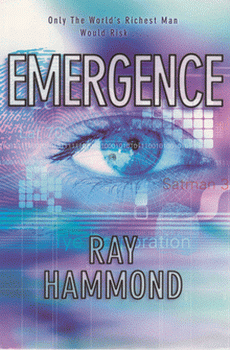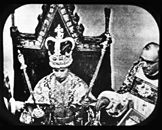Bob Ellis says of The Social Network that it is "today’s Citizen Kane", and I agree.
If The Social Network is today’s Citizen Kane, then Ray Hammond’s Emergence is a history of whoever might base their empire on the business principles pioneered by Mark Zuckerberg, Facebook’s founder, who has just floated his brainchild on the world's stock markets.
Orson Welles couldn’t have written Emergence: not for lack of imagination but of vocabulary. As a character says in Emergence, we can only describe something new by saying what it isn’t – "horseless carriage"; by using a visualisable metaphor, eg "iron horse"; or resigning understanding as in "magic lantern".
The cyber-oligarch is Thomas Tye, about whom I can say little for fear of ruining your read. We are in the middle of the 21st century, which isn’t that far away in time, but as far away in technology as 2000 was from 1950…or is it?
In 1950, people were tied to the radio, as much as they would be to the TV when the Queen’s coronation popularised the technology in 1952. In Emergence people can get their news virtually instantly, but their drive to do so is the same as that which fires newspapers, radio, TV and the town crier: what’s going on?
What’s going on in Emergence is something that Hammond reveals with the epic sensibility of a Tolstoy and a sense of dramatic irony that would turn Aeschylus green. So it’s all the more surprising to find that Emergence was written in 2001, when many of Hammond’s predictions that are in the early stages of R&D now hadn’t been thought of.
If you want to see how Facebook could turn out, you might want to read Emergence.
Gerry Dorrian
300 words



No comments:
Post a Comment